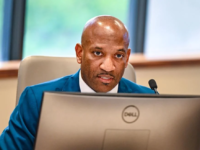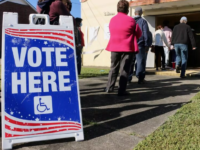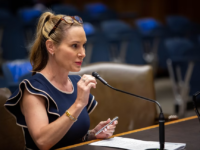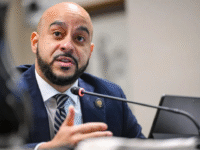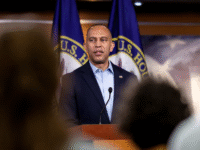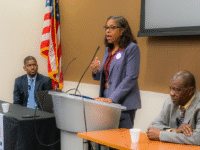On Monday, April 14, the Louisiana Legislature reconvenes for its 2025 session — kicking off debates on everything from taxes and schools to infrastructure and criminal justice. But if history is any guide, this session will likely offer more theater than transformation.
Why?
Because what happens (or doesn’t happen) in the Capitol’s committee rooms is too often decided long before the first gavel strikes.
Gerrymandered “Safe Seats” Keep Us Stuck
A big part of our political paralysis comes from safe seats — districts so gerrymandered that incumbents of both parties rarely face a serious challenge. This is especially true for Democrats in majority-Black districts drawn to concentrate the vote, sometimes hitting 70 or 80 percent Black populations. That strategy sounds empowering on paper but, in practice, it walls off competition and prevents the party from ever being competitive statewide. The end result? A Republican supermajority that never really has to work for power — and a weak Democratic caucus with little leverage to push back.
A Party on Permanent Defense
How did the Democrats get here? The short answer: a hollowed-out state party with no consistent funding or institutional support. With so few resources, the party gravitates toward deep-blue districts it can rely on, effectively ceding most of Louisiana to Republicans. And because Black legislators are the core of the Democratic caucus, the entire party identity becomes entangled with a narrow set of seats that are safe but strategically limiting.
This dynamic undermines everyone. When the party is pinned down by geography and racial lines, potential allies who could be attracted to a value-based message that speaks to their circumstance, not just their identity are left off the map altogether. That’s no way to build an enduring majority, let alone pass meaningful legislation.
Where’s the Fire?
Many Democratic legislators cast “no” votes on bad bills, but that’s often the extent of the resistance. Rarely do we see coordinated pushes to block them in committee, to rally public opinion, or to offer bold alternative legislation that truly challenges the status quo. It’s a polite dance: Republicans pass their corporate-friendly agenda, and the Democratic caucus protests just enough to pacify their supporters back home—without risking too much. Then everyone goes back to their safe district.
An Identity Trap
None of this is an argument against Black leadership—far from it. We need more Black leaders in Louisiana politics, not fewer. But we need leaders who see that forging broader coalitions is the only way to dismantle the structural barriers that continue to marginalize Black communities, poor communities, and other underrepresented groups. If the goal is to actually govern—to pass legislation that protects workers, invests in public education, curbs pollution, and reforms criminal justice—we need a coalition that transcends rigid demographic lines.
Many current Black elected officials will scoff at this, fearing that a more diverse electorate in their district challenges their ability to win. But this is precisely where the interests of our community diverge from the interests of some of our political leaders. Just because today’s incumbents might lose in a more competitive district doesn’t mean we lack Black leaders who can prevail there. Right now, in many Black districts, we often elevate leaders who can barely articulate the difference between Democrats and Republicans—let alone instill confidence that they’ll fight passionately for our priorities once the session begins. Safe seats shield them from needing strong messaging or proven policy skills. As a result, unskilled politicians with limited broader appeal keep drawing district lines to maintain super-Black seats they personally can win, even if it comes at the expense of building a real legislative majority. Their weaknesses get projected onto all of us—and we pay the price.
New Session, Old Habits?
It’s easy for Democrats in safe seats to cast symbolic “no” votes on Republican bills without ever mounting a real fight. There’s rarely a coordinated effort to block bad legislation in committee, rally public opinion, or propose bold alternatives that challenge corporate power. Meanwhile, Republicans pass their agenda with little resistance. Theatrical speeches? Yes. Real pushback? Not so much.
A Path Toward Power
If we want a different outcome, we need to address the root problem. That means:
-
Rethinking Redistricting: Stop corralling Black voters into a handful of districts; start drawing maps that create more competitive seats. It’s the only way to build real influence, even if it forces incumbents out of their comfort zones.
-
Building a Broader Coalition: Appeal to low-income communities, middle-class families, and anyone tired of corporate overreach—wherever they live. Conceding “unwinnable” districts is self-fulfilling and self-defeating. You shouldn’t be able to tell a Democratic voter just by looking at them. We need to speak to circumstance, not merely identity.
-
Investing in Candidate Development: We need a Democratic Party that’s more than a label. Recruit, train, and fund leaders who understand how to speak across racial and geographical lines, delivering policy outcomes that matter in people’s everyday lives. But we need Democrats who can win where they are – not Democrats who fit a mold determined by operatives who don’t live where the votes are.
None of this is easy, and it won’t happen overnight. But every legislative session that comes and goes without a plan to break the gridlock is another year in which Louisiana’s working families are left behind. If we actually mean the things we say before Election Day – you know, how dire the situation is for those living off of our bottom-barrel minimum wage, or those who can’t afford groceries, or are at risk of having their Medicaid taken from them – then we can’t have apathy about our statewide competitiveness. Because that’s how we change things at the Capitol. It’s the only way.
So as the new session gavels in, let’s look beyond the headlines and bill summaries. Let’s ask the hard question: Are we content with more of the same — safe seats and polite losing? Or are we finally ready to reimagine how we do politics in this state?
Until we wrestle with these structural and strategic issues, every new session will look an awful lot like the last one—dominated by corporate-friendly lawmakers and devoid of serious Democratic influence. Because survival alone is no substitute for real power.
And Louisiana’s people — all of us — deserve more.


